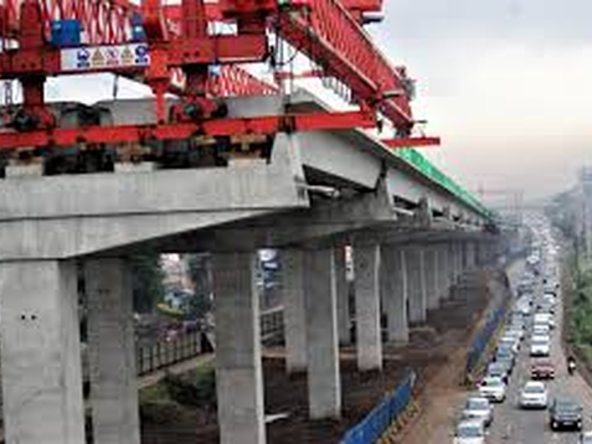Investing early into properties still under construction offers unique potential. In particular, off-plan property investment in Nairobi, Kenya has emerged as a compelling strategy for investors and home-buyers alike. With urbanisation accelerating, land costs rising and modern housing demand growing, buying off-plan in Nairobi presents an opportunity to secure a property at lower cost, benefit from capital appreciation, and leverage flexible payment structures. This article explores the market dynamics, benefits, risks, data-backed trends, and smart execution steps—in the context of Nairobi’s evolving real estate sector.
Contact Us
- Park Suites, 44 Parklands Road, Ground Floor, Suite 1, Willstone Homes
- +254711082011
- [email protected]
Market Context & Data Snapshot
The Nairobi real-estate market shows promising fundamentals for off-plan acquisition:
| Metric | Value / Observation | Source |
|---|---|---|
| Kenya’s economy average real GDP growth (last decade) | ~5 % annually | Wandering Investor+2Kenya National Bureau of Statistics+2 |
| Urban housing demand trend in Kenya | High; major cities show large rental/tenure deficits | KMRC+1 |
| Off-plan purchase popularity (2021) | Only ~25 % of respondents considered off-plan; 75 % preferred ready-to-occupy homes | KMRC |
| Typical rental yield in new developments in Nairobi | Example: ~6.9 % net yield for 2-bedroom unit [see detailed breakdown] | Wandering Investor |
| Off-plan units price discount compared to ready units | Often 15-30 % lower at launch than a comparable completed unit | BuyRentKenya+1 |
Additionally, according to the Kenya National Bureau of Statistics (KNBS) 2023/24 Real Estate Survey, residential and commercial construction continues growing in Nairobi and greater Kenya, indicating momentum for new-development sales.
In short: the macro and micro context in Nairobi supports off-plan investing, but with caveats (which we’ll explore).
Read Also: Why Kenyan Developers Keep Shrinking Apartment Sizes
Why Off-Plan Property Investment in Nairobi, Kenya Makes Sense

Here are the primary advantages that make this strategy attractive:
Lower Entry Price
By purchasing before completion developers often offer early-bird pricing (discounts of ~15-30 %). This gives early investors a built-in equity buffer and better upside.
Flexible Payment Terms
Many off-plan schemes allow instalments over the construction period rather than a full lump sum purchase of a completed unit. This improves cash-flow planning and makes high-value properties more accessible.
Appreciation Potential
As the property completes and the neighbourhood develops (infrastructure, amenities, better connectivity), the value often rises. For example, a cited project in Kilimani launched at KSh 4.9 M for a 1-bed unit and later traded at ~KSh 6.8 M (≈39 % appreciation) pre-handover.
High Rental Demand / Yield Potential
Nairobi’s rental market remains strong, especially for modern apartments in desirable locations. Investors planning to let post-completion may benefit from yields in the 5-7 % range (net yield dependent on occupancy, management, etc.).
Customisation & Modern Amenities
Since you’re buying early, you often have a say in finishes, layouts, floor choice, etc. Off-plan developments are also more likely to deliver contemporary amenities (gym, pool, co-working spaces) which enhance value and attract tenants.
Key Risks & What to Watch

No investment is risk-free, and off-plan in Nairobi has specific pitfalls.
Developer Delay or Default
Studies indicate a significant portion of off-plan projects face delays or never complete as promised. For instance, one research noted that 20-30 % of off-plan developments in Kenya faced major delays.
Developer Credibility and Speculation
Some developers may be inexperienced or rely on new sales to fund ongoing construction — raising risk of short-falls. Research highlighted that off-plan popularity is declining partly because buyers remain wary of delivery and quality.
Economic & Construction‐Cost Pressures
Increases in interest rates, inflation in construction materials, labour costs and regulatory burdens can raise costs or delay projects, affecting expected returns. Many Kenyan reports note that performance is sensitive to macro-economic shifts.
Legal / Title Risks
Land disputes, unclear titles, missing approvals for planning or construction are common risks in Kenya. Ensuring documentation and regulatory compliance is non-negotiable.
Execution Strategy: How to Make Off-Plan Property Investment in Nairobi Work for You

To maximise benefit and minimise risk, follow a disciplined approach:
- Vet the Developer
- Confirm their past projects, timelines, quality, and hand-over record.
- Check registration with the National Construction Authority (NCA) and their corporate financial standing.
- Visit live/previous sites and speak to their clients.
- Select the Right Location
- Target emerging growth zones in Nairobi (or peri-urban satellite towns) that benefit from infrastructure (expressway, rail, utilities) and rising demographic demand.
- Balance between affordability and connectivity / amenities for rental or resale demand.
- Assess Payment Plan & Timing
- Ensure payment instalments align with construction milestones (foundation, superstructure, finishing, hand-over).
- Avoid heavy up-front payments with no visible construction progress.
- Clarify what happens if project is delayed – penalties, interest, refund terms.
- Legal / Title Due Diligence
- Review title deed (freehold or leasehold), check for encumbrances (caveats, loans).
- Verify planning approvals, building permits, EIA certificate (if required).
- Ensure contract clearly states specifications, finishing standards, delivery date and hand-over conditions.
- Exit Strategy & Revenue Modelling
- Decide if you intend to occupy, rent out, or resell.
- Model rental yields and capital appreciation realistically (e.g., assume 80-90 % occupancy, management and maintenance costs).
- Have contingency budgeting for delays and cost escalations.
- Monitor Construction Progress
- Visit site periodically, check milestone completion, inspect quality of finishes.
- Stay in communication with the developer and your agent.
- Retain an independent QC (quality check) if needed.
Example (Hypothetical) Project Comparison Table
Here is a simplified illustration that you can adapt to your own projects to show potential investment scenarios:
| Project Name | Launch Price (Off-Plan) | Estimated Completion | Forecast Market Value on Completion | Estimated Net Yield (Year 1) | Key Assumption |
|---|---|---|---|---|---|
| Project A – 2 BR in Emerging Area | KSh 10 M | 24 months | KSh 12.5 M (25 % upside) | ~6.0 % | 90 % occupancy, KSh 650k rent p.a. |
| Project B – 1 BR in Prime Area | KSh 8 M | 30 months | KSh 10.4 M (30 % upside) | ~5.5 % | 85 % occupancy, KSh 500k rent p.a. |
| Project C – 3 BR in Satellite Town | KSh 6.5 M | 18 months | KSh 8.0 M (23 % upside) | ~7.0 % | 95 % occupancy, KSh 460k rent p.a. |
Note: These figures are illustrative. Actual returns depend on unit size, location, construction quality, amenities, market conditions and management. Always tailor to your particular project metrics.
Why Now Is a Good Time for Your Company to Leverage Off-Plan Investment

Given your company’s scope of manufacturing, selling and repairing (if you also engage in infrastructure or developments) or brokering off-plan units, you’re positioned well when you:
- Emphasise early-bird pricing and flexible payment plans to attract buyers.
- Leverage the demographic tail-winds of Nairobi and its satellite towns (Kiambu, Juja, Thika) in your marketing and positioning.
- Offer transparent project timelines, credible track-records, developer credentials and quality assurance to overcome buyer hesitancy about off-plan.
- Develop models / case-studies based on your own past projects or pipeline to demonstrate trust and capability.
- Use SEO-friendly content (such as this article) around “off-plan property investment in Nairobi, Kenya” as a focus keyword to drive traffic to your website and generate leads.
The strategy of off-plan property investment in Nairobi, Kenya presents a robust opportunity for investors willing to move early, do their homework and manage risk. With lower entry costs, flexible payment options, rising housing demand and strong rental yields, off-plan units can deliver both capital appreciation and income streams. That said, success depends on selecting the right developer, verifying legal and documentation, choosing promising locations, and aligning payment and exit strategies. For your company, leveraging your project pipeline and marketing around this trend can unlock multiple benefits—both for you and your target buyers. If you approach it with discipline, vision and execution, off-plan investment in Nairobi is not just a marketing line—it’s a strategic value-creation path.





